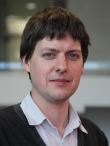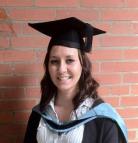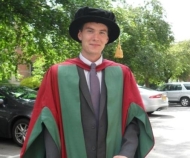Drs. Max Lempriere, Abena Dadze-Arthur and Karin Bottom
It is perhaps a little cliché to say that there’s never been a better time to study public management, whether in the context of local government or otherwise. The fact that local government has undergone significant reform over the years – a process that shows little sign of abating – is well known. Indeed, the political world is shifting before our eyes into something new, some would say exciting and certainly worthy of study. Clichés abound, life as a student of public management and local governance certainly won’t be dull.
Avoiding cliché then, perhaps its more apt to say that there’s never been a better time to study at The University of Birmingham’s Institute of Local Government Studies (INLOGOV). The University’s reputation is well recognized; it was 2013-2014 University of the Year, sits 13th in the 2017 Guardian University Guide and is among the top 100 best Universities in the world. As the UK’s leading centre for the study of local government and strategic public management, INLOGOV is well placed to make sense of what looks to many to be a chaotic system. Our research directly informs contemporary debates and legislative activity and the work we do with local authorities across the world is highly respected.
What is it like to study here, though? We offer a number of courses, taught by some of the leading authorities in the field, all of which are specifically designed to further your career in public administration, wherever in the world you choose to work. Whether you’re interested in a Masters degree, Postgraduate Diploma or Postgraduate Certificate and can commit full time or part time, we offer courses in Public Management, Public Service Commissioning and Social Research. It doesn’t even matter if you’re unable to physically come to the Birmingham campus; whilst INLOGOV offers courses in the form of a traditional brick-and-mortar degree, whereby students attend classes on campus, it also offers an internationally acclaimed Masters of Public Administration (MPA) online degree, whereby students do all their classroom activities outside the traditional classroom, at a distance from the University of Birmingham, and supported by technology-based tools.
For those looking for a more focused, research driven learning experience you can choose instead to undertake doctoral research, whether as part of an integrated learning package with a focus on public policy or a traditional research-driven doctorate (offered both on campus and through distance learning). Have a look at our website for an outline of our research interests.
In both the on-campus and distance learning courses, our students are very mixed in terms of their age, where they come from, and their experience of the public sector. Typically, in INLOGOV’s master courses, students with backgrounds as mid-career public servants are rubbing shoulders with course participants who just graduated from their undergraduate studies. For example, a fifty-eight-year-old minister in Jamaica’s government took our Masters in Public Administration a 25 year old who recently completed his undergraduate studies in social care in China. This makes for a fantastic learning community, where the pedagogical focus remains on the learners and how they connect their varied experiences of public management to the theoretical concepts explored during the course.
In both our on-campus and online courses, we use high-quality learning resources, which also feature animated videos and interactive diagrams and theoretical models. Mindful of the international nature of the student group who register for our masters programmes, we always add new literature on international public management and governance in the reading lists; we include a variety of contemporary case studies and examples of public management from around the world; we ask students to watch a series of short, BBC-documentary-style videos featuring practitioners and researchers from across the globe who discuss their particular experiences of public management and governance in their respective home countries; and we use an array of photo images to portray global diversity in public service delivery.
Although we use the same high-quality and interactive learning resources for on-campus and distance learning courses, there are of course important differences in terms of the learning environment, which meet different student needs. Campus-based classes require students to attend classes in person and at specific times. Online classes are free from the constraints of space, pace and time, and give students the flexibility to do their work in their own time and at their own pace, but require students to be very self-motivated, disciplined and comfortable with working independently.
Wherever you choose to take your degree – and students take it far and wide, whether as public servants, journalists, consultants, academics and so on – a degree from INLOGOV will serve you well.
For more information on the courses we offer and to find out about upcoming open days (whether virtual or on campus) please visit http://www.inlogov.bham.ac.uk. Alternatively, to keep up to date with the latest research and discussions from the department check out our blog at www.inlogov.com or follow us on LinkedIn and Twitter@INLOGOV.
 Max is an INLOGOV Associate and has a PhD in political science from the University of Birmingham. He has taught for a number of years on many aspects of politics, public administration, research methods and academic skills. Prior to that he read political economy at the University of Birmingham and Stockholm University. His research interests include institutional theory, environmental politics, local government innovation and policy entrepreneurship.
Max is an INLOGOV Associate and has a PhD in political science from the University of Birmingham. He has taught for a number of years on many aspects of politics, public administration, research methods and academic skills. Prior to that he read political economy at the University of Birmingham and Stockholm University. His research interests include institutional theory, environmental politics, local government innovation and policy entrepreneurship.
 Abena has taught on a variety of INLOGOV courses on various aspects of public management and governance to a) international distance learners, who complete the programme wholly online; b) in-house local government participants, and c) ‘on-campus’ students comprising a mix of full-time and part-time-registered practitioner students Abena’s research mainly focuses on non-western and post-western public management approaches that are rooted in local subject positions, indigenous norms and values, locally embedded representational and performative practices, and mirror local history, culture, and religious or philosophical traditions, while promoting public engagement, accountability and effective public services.
Abena has taught on a variety of INLOGOV courses on various aspects of public management and governance to a) international distance learners, who complete the programme wholly online; b) in-house local government participants, and c) ‘on-campus’ students comprising a mix of full-time and part-time-registered practitioner students Abena’s research mainly focuses on non-western and post-western public management approaches that are rooted in local subject positions, indigenous norms and values, locally embedded representational and performative practices, and mirror local history, culture, and religious or philosophical traditions, while promoting public engagement, accountability and effective public services.
 Karin is INLOGOV’s Director of Teaching and Learning and directs INLOGOV’s MSc in Public Management and lectures on modules concerned with 1) party politics; democracy and public management; 2) research methods.
Karin is INLOGOV’s Director of Teaching and Learning and directs INLOGOV’s MSc in Public Management and lectures on modules concerned with 1) party politics; democracy and public management; 2) research methods.




